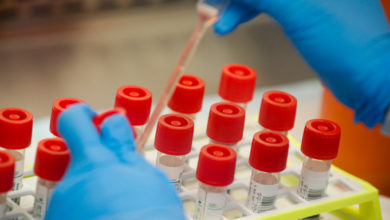
U.S. scientists announced Wednesday they used gene editing technology for the first time to remove harmful genetic mutations inside human embryos.
The team removed a genetic mutation that causes heart failure using a controversial procedure but none of the embryos were allowed to grow into babies — a process that is illegal in the U.S. and many other nations.
China is the only other country where successful gene editing in human embryos has been conducted, however, that work did not actually remove deadly defects.
Although U.S. researchers removed a heart failure mutation, the process could theoretically work for a wide range of illnesses caused by genetics, including cystic fibrosis and several types of cancers. Furthermore, gene editing would remove the mutations from all future generations.
The landmark study was published Wednesday in the journal Nature by scientists at the Oregon Health & Science University (OHSU).
“Every generation on would carry this repair because we’ve removed the disease-causing gene variant from that family’s lineage,” senior author Shoukhrat Mitalipov said in a statement. “By using this technique, it’s possible to reduce the burden of this heritable disease on the family and eventually the human population.”
The scientists used the CRISPR gene editing tool that allows a researcher to precisely target and change specific genes. The scientists targeted a mutation that causes a condition called hypertrophic cardiomyopathy that can lead to heart failure and sudden death. Approximately one in 500 people globally suffer from hypertrophic cardiomyopathy.
The possibility of editing genes raises significant ethical questions and OHSU scientists noted trials on embryos meant to grow into babies are a long way away.
“The ethical considerations of moving this technology to clinical trials are complex and deserve significant public engagement before we can answer the broader question of whether it’s in humanity’s interest to alter human genes for future generations,” Daniel Dorsa, another author on the research, said in a statement.
Error, group does not exist! Check your syntax! (ID: 9)Anadolu Agency



